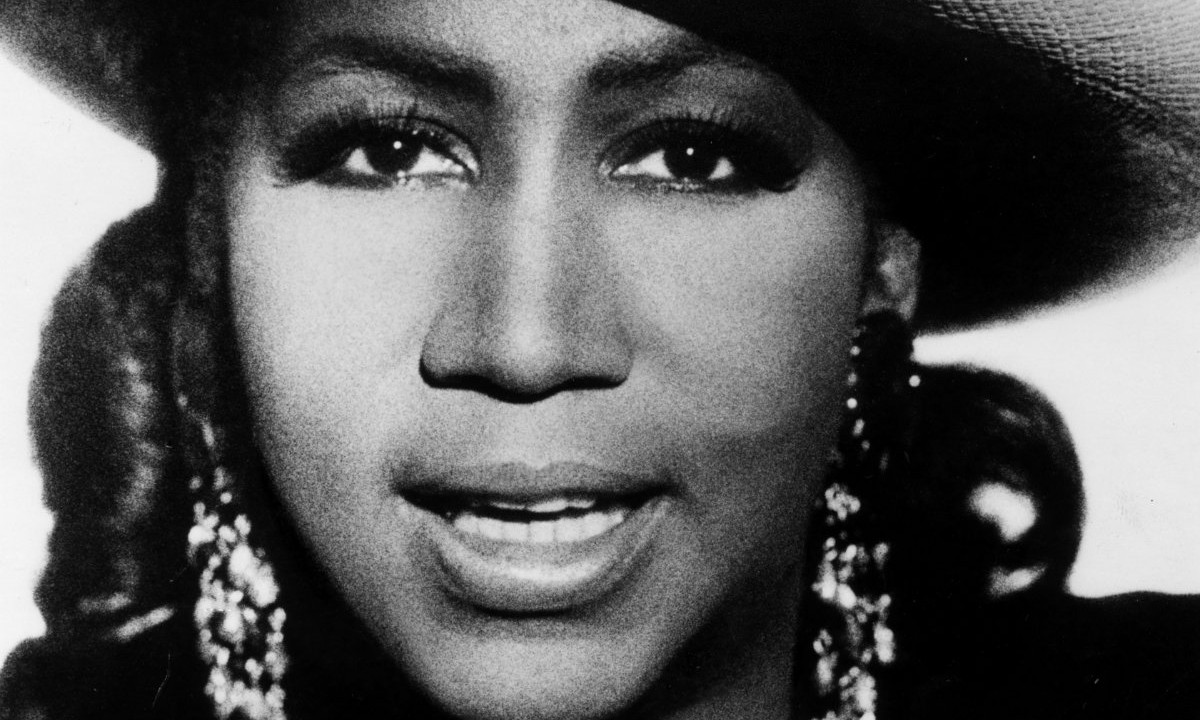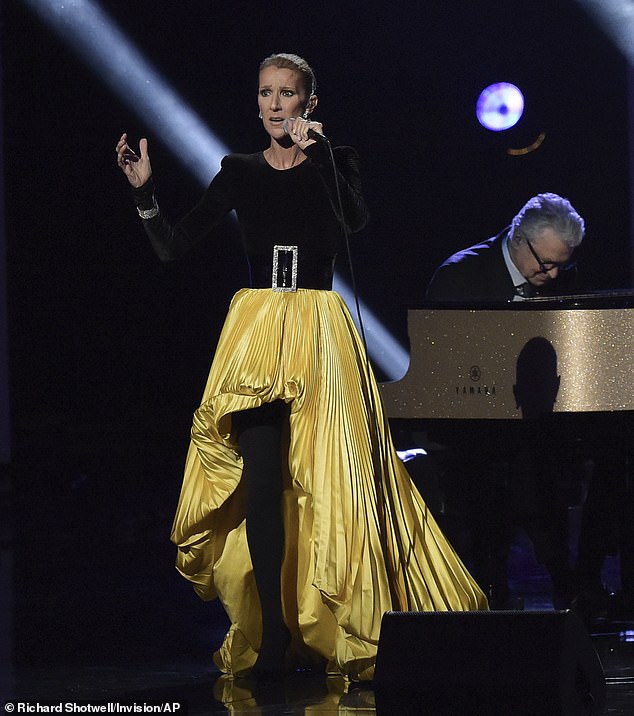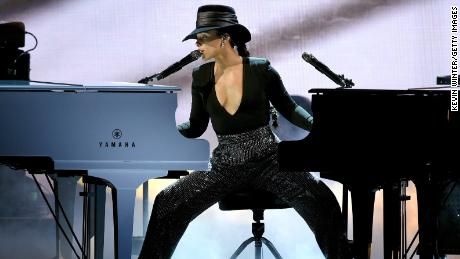 I’ve been asking myself this question ever since the passing of the most powerful musical force of nature the world has ever known. I have my doubts, but since I don’t want to be that grumpy old guy, locked in the past who can’t or won’t appreciate new talent and trends, I try to keep an open mind and listen out for new voices that generate musical excitement and passion the way Aretha did when she burst on the scene back in the sixties. Just like Aretha followed in the steps of soul-singing giants like Ruth Brown, Laverne Baker and Etta James, and then raised the artistic bar to new levels, I’m looking for those new innovators whose music I can’t wait to load onto my devices as my go-to sounds, the tunes I’ll listen to as I drive, fly, sit at my computer, or do chores at home. But all these many months after her passing, I find I’m still listening to Aretha’s music as much as ever, more than that of all my other favorite artists and genres combined.
I’ve been asking myself this question ever since the passing of the most powerful musical force of nature the world has ever known. I have my doubts, but since I don’t want to be that grumpy old guy, locked in the past who can’t or won’t appreciate new talent and trends, I try to keep an open mind and listen out for new voices that generate musical excitement and passion the way Aretha did when she burst on the scene back in the sixties. Just like Aretha followed in the steps of soul-singing giants like Ruth Brown, Laverne Baker and Etta James, and then raised the artistic bar to new levels, I’m looking for those new innovators whose music I can’t wait to load onto my devices as my go-to sounds, the tunes I’ll listen to as I drive, fly, sit at my computer, or do chores at home. But all these many months after her passing, I find I’m still listening to Aretha’s music as much as ever, more than that of all my other favorite artists and genres combined.
A few days ago, I watched a televised Grammy Tribute to Aretha. It was a beautiful, tasteful and well-done salute to her great legacy. But as much as I enjoyed hearing Jennifer Hudson, Alicia Keys and many others pay homage, their renditions of Aretha’s signature hits in no way approached the passion, originality or soulfulness of Aretha’s own versions. Most weren’t even close.

Surprisingly to me, only Celine Dion measured up. Mirroring Aretha’s style, her performance relied on no fancy supporting dance choreography, clever camera work or dazzling set changes. Wearing a gorgeous black and gold gown, she stood in front of her orchestra and straight-up killed A change is Gonna Come. She depended solely on her own artistry and passion. Like Aretha, she used a perfect vocal instrument that, despite its stratospheric range, never even came close to missing a note. And she sang with feeling too, even if not quite with the same intensity as the queen. When Aretha sang, you didn’t even have to hear the music to feel the passion. You only had to look at her face to know that something powerful was being expressed.

A few weeks earlier, I had watched the Grammy Awards, again with an eye toward learning about emerging young talent. While I wasn’t crazy about all I saw, I was wowed by Alicia Keys. She was beautiful, poised, exquisitely dressed, and her great musicality was on full display. I loved the way she paid tribute to the talents and contributions of her “sisters,” Lady Gaga, Jada Pinkett, Jennifer Lopez and the incomparable Michelle Obama. And she owned the house with her chill, double-piano playing tip of the hat to the legendary Hazel Scott.
Alicia has been around for a while, and like Aretha, is blessed with a Trifecta of talent. Not only is she a great vocalist and keyboard virtuoso, she is also a prolific composer. She has accumulated a body of work, and is a Grammy-winning artist. Maybe I should know her work better, but I haven’t heard the kind of unforgettable stuff from her I’ve long expected.
Perhaps it’s not fair to compare the careers and work of artists of different generations. Especially if one of the artists comes from my own generation and all of the newer ones from that of my children and grandchildren. Each artist must face the challenges and address the norms and popular tastes of their times. Artists of today face different challenges and audience preferences than did Aretha.
It is a fact that Aretha has a greater body of work than almost any living artist, but she was at it longer than today’s crowd. A few decades from now, Alicia, Jenifer Hudson, Jill Scott, John Legend and some of the others may very likely have accomplished just as much. And who knows whether Aretha could have pulled off the hosting of the Grammies as well as Alicia. In her generation, Aretha never had that opportunity, so we’ll never know. But I wouldn’t sell her short. Who could ever forget the miracle at the 1998 Grammies when Luciano Pavarotti suddenly took sick, and on only a few moments notice, Aretha agreed to fill in and brought the house down with her operatic rendition of “Nessun Dorma.” And in Italian, no less! There was nothing the queen couldn’t do.
Because Aretha was in the public eye for so long, we know a lot about her and the obstacles she overcame. We appreciate her so much knowing that she achieved the highest levels of her art even though she bore the first of her four children at age twelve and the second at age fifteen. She herself knew that she didn’t always take the best care of herself, and at one point in her career, acknowledged that her cigarette smoking was damaging her voice. That she was able to meet these challenges and still accomplish all that she did is a testament to her greatness.

Aretha solidified her legacy as she transitioned from the hot new soul singer and hit-maker of the sixties and seventies, reignited her career and re-emerged in the nineties as the legendary queen of soul. It seemed that, in her later years, she even regained some of some of the singing powers that had faded after her bombshell early years. Who can ever forget her powerful performance of A Natural Woman for President Obama at the 2015 Kennedy Center Honors. A fur-clad Aretha was back in full voice and diva mode as she brought the president, the song’s composer, Carol King, and many in the packed audience to tears with her powerful singing and keyboard artistry. It was one of her best performances, ever.
A talent no less than the great Chaka Khan, herself a legendary artist and icon, weighed in recently with her assessment of today’s crop of artists. In response to a question posed on the Steve Harvey show this past February about what is missing from today’s young artists, she replied simply: “Talent.” And then she added: “Sincerity.” She went on to express doubt that some of today’s performers could answer, with conviction, the question: “Why am I here on this stage?”
But there’s more to achieving iconic status than talent. Talent is a necessary, but not a sufficient condition for greatness. With the impressive body of work he has created, who could question whether R. Kelly has talent? But with his serious character flaws and bad behavior, he will never achieve iconic status. Some years ago, before I was fully aware of his reputation as an abuser of underage girls, I saw him at a New year’s-eve performance in Detroit. Before a mostly inner-city audience, he did not take the stage until well after midnight following an endless sequence of local warm-up acts. When he finally arrived on stage for no more than a thirty minute “show,” he wore a head rag, combat boots and looked as if he were dressed to clean out the garage. A hodge-podge of artists from previous acts milled about the stage as he half-heartedly performed. Missing was the tux, inspired singing and intensity he reserves for his mainstream, A-list audiences. His performance was a disgrace.
Aretha would have never disrespected her audience like that. Whenever she took the stage she always displayed her trademark majestic bearing. She always performed with great dignity and never half-stepped. It just wasn’t in her DNA.
Even though I miss Aretha, I’m still hoping for great things from the younger generation. After seeing and hearing Celine Dion’s great singing at the Aretha tribute, I’ll be listening to more of her music. And watching Alicia’s outstanding Grammy performance re-ignited my interest in her. I’m hoping their work and that of other young artists can, like Aretha’s, become part of the America’s musical culture and lexicon. When thinking about the meaning of the word “respect” and how it applies to the women of today’s me-too generation, who can help but think of Aretha? Maybe there is an up-an-coming young artist out there that can generate the same kind of excitement and continue in that great tradition.